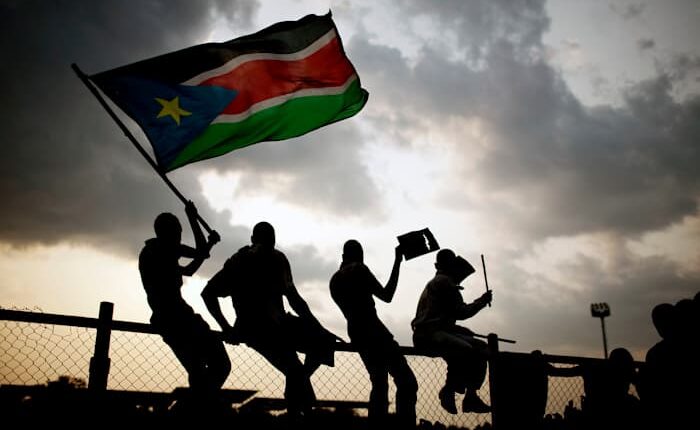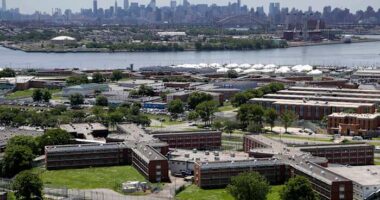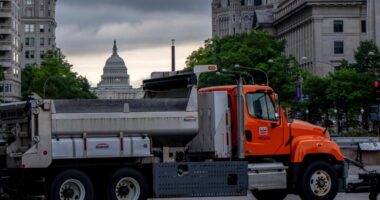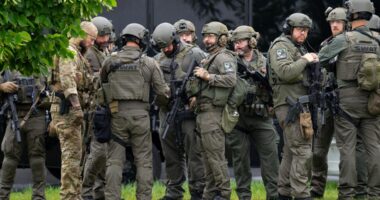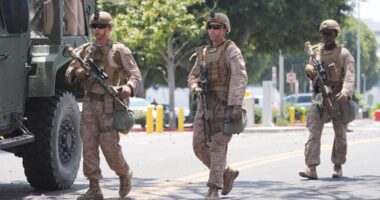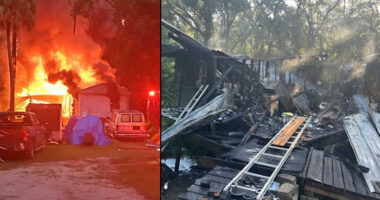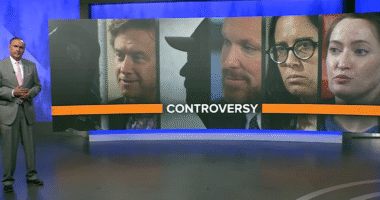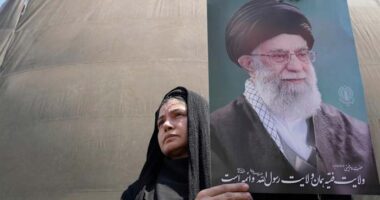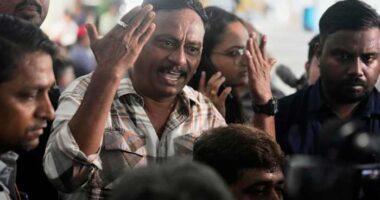
When South Sudan gained independence, the United States celebrated the event. However, recent developments have led to questions about the U.S. deporting migrants to a country embroiled in the threat of civil unrest once again.
A U.S. judge ordered Trump administration officials to appear at an emergency hearing Wednesday to answer questions.
The potential deportations imply individuals from countries like Vietnam and Cuba are being relocated to a country with which they have no association, far from their intended destinations. For example, the nearest Vietnamese embassy to South Sudan is located in Tanzania, a distance of more than 800 miles.
According to South Sudan’s police spokesperson, Maj. Gen. James Monday Enoka, no migrants have arrived in the nation as of Wednesday. Enoka stated that if migrants were to arrive, they would undergo investigations and could potentially be deported to their actual home countries if they are not identified as South Sudanese.
Recently, the Trump administration abruptly revoked the visas of all South Sudanese, saying the country’s government failed to accept the return of its citizens “in a timely manner.” South Sudan pushed back, saying the person in question was Congolese, but later said it would allow him into the country “in the spirit of maintaining friendly relations” with the U.S.
South Sudan’s government has struggled since independence from Sudan in 2011 to deliver many of the basic services of a state. Years of conflict have left the country heavily reliant on aid that has been hit hard by another Trump administration decision — sweeping cuts in foreign assistance.
Here’s a look at South Sudan, whose own people had been granted U.S. temporary protected status because of insecurity at home.
A deadly divide
The euphoria of independence turned to civil war two years later, when rival factions backing President Salva Kiir and deputy Riek Machar opened fire on each other in South Sudan’s capital, Juba, in 2013.
The two men’s tensions have been so much at the heart of the country’s insecurity that the late Pope Francis once took the extraordinary step of kneeling to kiss their feet in a plea for lasting peace.
Five years of civil war killed hundreds of thousands of people. A peace deal reached in 2018 has been fragile and not fully implemented, to the frustration of the U.S. and other international backers. South Sudan still hasn’t held a long-delayed presidential election, and Kiir remains in power.
His rivalry with Machar is compounded by ethnic divisions. Machar has long regarded himself as destined for the presidency, citing a prophecy years ago by a seer from his ethnic group.
Earlier this year, the threat of war returned. Machar was arrested and allies in the government and military were detained following a major escalation that included airstrikes and an attack on a United Nations helicopter. Machar’s opposition party announced South Sudan’s peace deal was effectively over.
“Let’s not mince words: What we are seeing is darkly reminiscent of the 2013 and 2016 civil wars, which killed 400,000 people,” U.N. Secretary-General Antonio Guterres warned.
Some Western countries have closed their embassies there while others, including the U.S., have reduced embassy staff. The U.S. Embassy’s travel warning said that “violent crime, such as carjackings, shootings, ambushes, assaults, robberies, and kidnappings are common throughout South Sudan, including Juba.”
A country in disarray
The Trump administration’s pressure on South Sudan to take in deportees, including foreign ones, is in sharp contrast to Washington’s past warm embrace as its rebel leaders — including Kiir and Machar — fought for independence.
Now there is less support than ever for most of South Sudan’s over 11 million people because of the cuts in U.S. aid.
Climate shocks including flooding have long caused mass displacement and closed schools. South Sudan’s health and education systems were already among the weakest in the world. Aid organizations had offered essential help.
South Sudan’s government has long relied on oil production, but little money from that is seen, in part because of official corruption. Conflict in neighboring Sudan has affected landlocked South Sudan’s oil exports. Civil servants at times go months without being paid.
How South Sudan is equipped to handle migrants arriving abruptly from the U.S. is yet to be seen.
Copyright 2025 The Associated Press. All rights reserved. This material may not be published, broadcast, rewritten or redistributed without permission.
